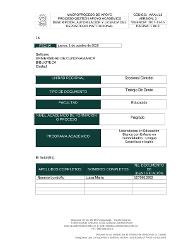| dc.description.abstract | La presente investigación consistió en la aplicación de una propuesta pedagógica para el desarrollo del pensamiento crítico basado en la filosofía para niños desde la experiencia en estudiantes de primero y segundo en la vereda Alto del Trigo. Teniendo en cuenta que el pensamiento crítico ha ocupado un papel muy importante en la historia y su origen se remonta a la época en donde los encuentros culturales entre Oriente y Occidente enriquecían la ciencia del saber. Los tres representantes antiguos más importantes del pensamiento crítico son Siddhartha Gautama, Sócrates y Confucio. Por esto la filosofía es la principal forma de auto reconocimiento del individuo y brinda la posibilidad de exteriorizar los pensamientos, necesidades, ideales y realidades en determinadas situaciones comunicativas, en este caso desde la temática de filosofía para niños de Lipman formando así la construcción de conocimientos. Igualmente, la configuración del pensamiento crítico para la apropiación de conocimiento es vital en la formación participativa y activa del estudiante. Se implementa el enfoque de la Investigación Acción Participativa en el Aula (IAA), dándole una actitud científica, crítica y reflexiva. “aprender haciendo “Elliot (1993). La metodología de este trabajo es un enfoque cualitativo: investigación acción participativa en el aula. Desde lo cualitativo se incentivó un cambio en las acciones de los investigadores y sus participantes en cuanto a la manera de aprender, enseñar, y la concientización de la relevancia de la filosofía en niños a partir de la reflexión y el análisis. ABSTRACT: This investigation consisted into the pedagogical proposal’s application for the development of critical thinking on students of first grade in Alto Trigo, based on the philosophy for children from the experience. Taking into account that critical thinking has made an important role in history and its origin comes from the age where the culture shock between East and West made stronger the science of knowledge. The three oldest and most important representatives about the critical thinking are Siddhartha Gautama, Socrates y Confucius. For that, philosophy is the most important way of self-recognition of the individual and it offers the possibility to express thoughts, needs, ideals and realities in certain communicative situations. In this case, from the thematic of philosophy for kids from Lipman’s didactic proposal thus forming their construction of knowledge. Likewise, the appropriation of knowledge is vital in the participatory and active training of the student which is why is necessary to setting up the critical thinking. Participatory Action Research in the Classroom (PAR) was implemented in order to give a scientific, critical and reflexive attitude. “Learning by doing” Elliot (1993). The methodology of this investigation was qualitative: participatory Action Research in the Classroom. A change in the actions of the researcher and the participants about the way of learning and teaching was incentivized from the qualitative and raising awareness of the relevance of philosophy in children based on reflection and analysis. Finally, it’s necessary to mention that in the course of the different phases of this investigation an analysis was made from the students’ contributions, the collected information was analyzed through the workshops made in this investigation | es_CO |

